- Home
- Rick Mofina
The Panic Zone jg-2 Page 13
The Panic Zone jg-2 Read online
Page 13
“This line of thinking is but a digit in the full equation; it is useless as a foundation for a solution, akin to a bandage on a terminal patient. It deflects attention from the root cause of our destruction of the planet.
“Overpopulation.
“To put it simply, the earth cannot sustain the current trend of population growth. There are simply too many of us putting too much strain on the earth. We are wearing it out. Birth control, contraception, sterilization, natural disasters and pandemics, even wars are not enough to alleviate the stress we have put on this planet.
“Within fifteen years, every corner of the globe will face acute water and food shortages, unlike anything we’ve experienced. While wealthy nations shield themselves with technological and financial resources, poorer regions with unchecked populations will grow desperate. It will lead to civil unrest, instability and chaos.”
The speaker paused to drink water.
“We must take critical action now. As hope for the planet flickers, governments must take brave new steps. There are several options, but one that I put forward today is for the United Nations to champion a year of zero population growth.
“As it stands, there are approximately 140 million births each year worldwide and 55 million deaths. In order to address this ratio, in the face of our current crises, governments should be encouraged to enact legislation that outlaws pregnancy for one year.”
The speaker paused for the murmur of disbelief then continued.
“At the same time, all programs that prolong, or extend the life of anyone over the age of eighty, could be terminated for the same period. I am not advocating euthanasia, just removal of practices that thwart natural mortality and delay the inevitable. The combination of these initiatives holds the potential to curtail world population by some 200 million humans. China and governments of other populous nations have taken similar approaches, but they have not gone far enough.”
The speaker drank water, absorbing further ripples of reaction.
“Some may call me an apocalyptic prophet. They may align me with fringe elements, doomsday cults, extremists or brand me an outcast for challenging popular opiate thought.
“That does not trouble me, for in my life I have experienced how humanity reacts in times of distress. I have seen the worst unfold before my eyes after warnings were ignored, after rational thought evaporated.
“I am your witness to reality.
“I advocate extreme action because we face an extreme situation. Time is running out on human existence on this planet. We are entering the panic zone…”
The video faded to black.
“This is extreme,” Lancer said. “Is it Sutsoff?”
“No way of telling. No one’s heard of this ‘Condition of Mankind’s Progress Symposium.’ My friend thinks the video was made in Turkey or Africa.”
“Or it’s a complete hoax produced by undergrads at Yale or MIT,” Weeks said. “I just don’t think Gretchen is behind this, or anything like it.”
“Really, and why not?” Lancer asked.
“To let a professional disagreement fester over time into motivation for a vengeful act, using our work on Crucible, is just unfathomable, impossible.”
“Les, you didn’t work with Gretchen as closely as Foster and I did. The stuff in this manifesto is precisely what she was leaning to before she left.”
“Let me get this straight,” Lancer said. “Gretchen Sutsoff could be using Crucible’s research to put her extremist views into action?”
“That’s the scenario Foster and I fear,” Kenyon said.
“I just don’t buy it.” Weeks shook his head.
“Well, consider this,” Kenyon said. “About a month ago the CIA looked into Foster’s concerns about rumors online. They talked to me, too. I know that at first they dismissed Foster, but I recently heard from a friend at Langley who said the agency had reconsidered.”
“Why?”
“I don’t know. At this stage one can only speculate that they must have discovered something.”
“Your video?”
“Maybe, and maybe something more substantial,” Kenyon said. “Look at the circumstances. It’s the stuff of nightmares. Maybe they don’t want to alarm anybody. Do you know Gretchen Sutsoff’s story?”
“Foster said she’d had a troubled life.”
“Listen, our lives were put under a microscope when we were security-cleared to work on Crucible. I worked closely with Gretchen. She was very private, very guarded. Now we scientists can be eccentric in our own way, but she was different. Way out there. She seemed to have a pathological dislike of other human beings.”
“Why?”
“I don’t know. She refused to ever talk to anyone if it wasn’t necessary, let alone open up to anyone. In my time with her I learned that her father had a military background and that her family traveled, lived around the world. Then there was some sort of tragedy and Gretchen was hurt, she suffered some kind of neurological disorder.”
“Do you know what it was?”
“No, but it obviously didn’t hinder her intelligence. I think she took medication. Still, every now and then, she’d have episodes.”
“What sort of episodes?”
“Like an outburst. She had one around the time she left, when she’d advocated live human trials with File 91 without consent.”
“Foster told me he denied her request, it violated the Nuremberg Code.”
“Did he tell you what she said?”
“No.”
“It’s what precipitated her departure-I was the only one present with him and I’ll never forget it. She said something like, ‘These trials are for the public’s own damn good. Most people don’t have a clue what is best for them. They’re lemmings. Believe me I’ve seen them at their worst. Rational minds need to do the thinking for them.’”
“That sounds arrogant.”
“There’s more. She was storming out, when she stopped, turned and said, ‘You know, Nazi scientists were responsible for many of the modern world’s advances, and they did it because they were not restricted by boundaries. They had complete freedom to perfect the human race, to explore a vision.’”
“A vision of what?”
“Hell, likely. I believe at that time Gretchen was on the verge of a breakdown.”
“Do you have any idea how I can find her?”
“None. If the FBI can’t find Hoffa, and the CIA can’t find bin Laden, then nobody’s going to find Gretchen Sutsoff. I heard she took out new citizenship with a small country, changed her name, maybe her appearance.”
“What do you think is at work here?” Lancer asked.
“There are several possibilities-the North Koreans may have restarted File 91. Or some of the work may be on the black market or in the hands of an extremist faction. Or the possibility I fear most…”
“Which is?”
“Gretchen Sutsoff has lost her mind.”
26
Paradise Island, Bahamas
A seaplane flew low over Nassau’s harbor.
It descended near the mammoth cruise ships and luxury hotels before it touched down, peeling curtains of spray from the clear Bahamian water. It glided to the terminal at the foot of the Grand Blue Tortoise Resort.
A lone passenger stepped onto the dock; a woman in her late fifties. She wore a sleeveless white shirt, white linen pants, a white straw braided sun hat and dark glasses. A tote bag was slung over her shoulder. She carried a small black case in her left hand and she carried herself with the poise of an executive arriving for a business meeting as she walked to the golf cart and the young Bahamian man sent to pick her up.
“Good morning, Doctor.”
“Hello.”
Dr. Gretchen Sutsoff did not smile or offer conversation.
Whenever possible, she preferred not to deal with people but it was unavoidable today. She’d left the solitude of her private island to come to the resort to tend to her business. Today she would
conduct more secret trials. Her work was proceeding well, but if she was going to make her product more powerful she needed that overdue report from her research team in Africa, and she needed it now.
There was little time left.
The golf cart’s electric motor hummed softly as Gretchen and her driver rolled toward the main structure. With two thousand rooms distributed through the complex, the Grand Blue Tortoise was one of the most luxurious hotels in the world. It offered restaurants, pools, casinos, shops and an amusement park on a thirty-hectare expanse of tropical property, ringed with pristine beaches.
The road from the dock was lined with tall palms nodding in the breeze. As the golf cart neared the central structure, the road started to congest with a stream of jitneys, cars and cruise ship shuttles. Having to contend with crowds triggered the onset of one of Dr. Sutsoff’s throbbing headaches. She got out a capsule from a pill case in her bag as her driver maneuvered their cart to the entrance.
The lobby backed on to a restaurant bar. A giant flat-screen TV glowed from a dark paneled wall with a news report on the upcoming Human World Conference. She glanced at it as she passed by, reminding herself that she had much to do in very little time. Soon she would be leaving for her business meeting overseas. She checked her cell phone-still nothing from her primary research team in Africa. Everything was almost ready. But it was critical that she personally take charge of the final preparations.
Too much was at stake.
First things first, she told herself as she came to the breezeway that opened to a swimming pool and courtyard where suntanned guests lounged, reaching for drinks served on wicker trays.
Crossing the courtyard, she entered the south wing and a ground level area of the hotel. In the lush garden front, a wooden sign in dark mahogany identified the section as the Blue Tortoise Kids’ Hideaway.
This was the resort’s child-care service center. Its exterior walls were constructed with hurricane-proof glass. She saw toddlers and older children playing inside. Guests were required to use their room keys, and staff needed their swipe cards for access beyond this point. She fished in her bag for her security card and passed it through the reader. It beeped and she entered.
She was met with joyful chaos. The smells of baby powder, suntan lotion and fruit mingled in the air. It was a large operation handling scores of children from infants to preteens. It ran twenty-four hours a day, seven days a week and was staffed with trained caregivers and several nurses. It also had more than fifty top-flight babysitters on call for additional care on-site or in a guest’s room.
The Hideaway offered computer games, movies, parties, sleepovers and crafts, as well as supervised excursions throughout the resort or to the amusement park. It was meant for parents who needed a break for a few hours.
And, in some special cases, longer.
It was expensive but families from all over the world praised the quality of the care. Staff members were thoughtful, compassionate. No one was neglected and someone was always available to speak to any visiting child in Spanish, German, French, Japanese, Chinese, Portuguese, Farsi or Russian-nearly every major language.
The child care was not provided by the resort.
The Grand Blue Tortoise had contracted an agency specializing in the service. The Blue Tortoise Kids’ Hideaway was a numbered company that vanished in the labyrinth of the local tax system, the maze of Bahamian corporate law and the cloak of complex international banking operations.
The same shadowy entity also provided similar services at resorts in the United Arab Emirates, Greece, Australia, Maldives, Africa, the Mediterranean, Hong Kong, the U.K., China, Canada and the U.S.
Dr. Gretchen Sutsoff and her silent investors owned it all.
But no one knew that she was the invisible force controlling the company. Very few people knew her true identity. No one knew that, for years, she had been living under the alias of Elinor Auden, medical doctor, businesswoman and researcher. It enabled her to work with her international associates as they secretly strived to correct the mistakes of civilization.
“Good morning, Dr. Auden.” Lucy Walsh, the chief executive assistant, acknowledged a young family. “As you know we were expecting Elena and Valmir Leeka, and their son, Alek. They’re from Albania and have been vacationing in the United States.”
“Yes, of course.” Dr. Sutsoff smiled at the boy, squirming in his stroller. “Goodness, someone’s not happy. If you’ll indulge me for a minute, I’ll be with you shortly.”
The doctor entered her office alone, shutting the door behind her.
The quiet was calming.
She turned on her computers and glanced up at the bank of flat screens wired to the cameras monitoring the rooms, the outdoor jungle playground, and the pool where more children played.
Three muted TV panels monitored cable news channels.
No one knew the true nature of her research. No one knew the scope and reach of her operation and what it involved. She did a quick check, scrolling through files.
LA #212005 to New York67
LA #907864 to Texas908
LA #376274 to Minnesota9087
LN #77-487 to Bristol26
LN #F8-787 to Manchester98
LN #FF-879 to Dublin948
LN #00-977 to GlasgowS93
BN #JI-47-90 to Franfurt635
BN #K-489-86 to Munich875
BN #A-34-90 to Hamburg887
And the new ones: PRC #PQ-487-98 to Kunming967 and LA #181975 to Wyoming847.
The Chinese case would arrive soon. Now, she needed to focus on the extensive computer files she already had on the Albanians who’d arrived today with the Wyoming case. She had concerns with the Leekas but would get to them later.
Sutsoff’s dedication to her work bordered on being pathological. Her staff worshipped her genius with zeal and fear. Her enigmatic mystique commanded unquestioned obedience, loyalty and absolute secrecy.
For the “special cases.”
While most of the children at the center belonged to vacationing parents, there were those who were entangled in “complications,” such as international custody disputes or “other matters.”
“Their parents seek our service as a sanctuary,” Sutsoff had told her staff. “For security reasons, these situations must never be discussed.”
Consequently, the staff never questioned her about the strange cases or the cases of children who stayed for weeks, even months on end, as if they’d been abandoned.
Or hidden.
Dr. Sutsoff concentrated on these children, the ones her staff privately called, “the Children of the Hideaway.”
The latest to surface was the Albanian case of little one-year-old Alek Leeka. His medical records had already been scanned into the secure computer system. Dr. Sutsoff had studied them on her island before flying in today. Now, after rereading them and double-checking her secure files, she thought the preliminary work done was flawless. The child’s DNA signature was perfect, the best of them all to date.
But recent mistakes had been made in this case and it was time to deal with them. Sutsoff asked Lucy to usher the family into her private office. Lucy joined them, making notes of the meeting. The baby was on the verge of crying.
“Why so grouchy?” Sutsoff cooed. Then she said, “Hello, Elena and Valmir. You must be very pleased things have gone so well, so quickly?”
They smiled and nodded nervously. Elena was chewing gum.
“We are happy to have a son, finally,” Valmir said.
“The files note that you are both dual citizens of Albania and the United States and that you’re in the process of adopting your new child whom you’ve named Alek.” Dr. Sutsoff nodded to Lucy. “Unfortunately, the boy was orphaned when his parents recently died in a tragic car crash in the United States. Ah, but for every ending there is a beginning. The adoption process has been expedited through an international law firm based in Brazil. Isn’t that correct, Elena?”
Elena, who was working har
d on her gum, stopped and nodded.
“That is correct, yes.”
“It’s been a little stressful,” Sutsoff said to Lucy. “Elena and Valmir are going to extend their vacation. Now, if I may, I’ll just have a look at Alek. I see he’s a little crotchety. I think I can fix that.”
Sutsoff looked at the baby in his stroller, taking stock as if he were a prized jewel, smiling to herself before turning and scrutinizing her computer files once more. Then she hefted him to the small table in her office, slid on her stethoscope and while Lucy steadied him, proceeded to examine the toddler for some twenty minutes, making detailed notes the whole time. Afterward, Sutsoff went into her small fridge and poured a little fruit punch into a plastic cup with dolphins on it. Then Sutsoff opened her small black medical bag, found a tiny brown bottle, unscrewed the lid and tapped a few drops into the juice.
“This medicine should help.” She held the cup while little Alek gulped it down.
“That’s a good boy.” She patted his head. “Lucy, would you mind getting one of the staff to take care of Alek. He’s going to stay with us for this afternoon while his parents have some alone time.”
Lucy took the toddler in her arms.
“Come on, sweetie,” she murmured. “You can meet the other angels.”
After Lucy closed the door, Valmir’s head snapped to Dr. Sutsoff.
“Where is our fucking money?”
Sutsoff ignored him and checked a file on her computer.
“We want to be paid now,” Valmir said.
“Valmir, you were part of the recovery team in the case of this Wyoming boy?”
Subtly, Valmir pushed his chest forward. “Yes.”
“Your instructions were to obtain the baby. That accident could have killed him. You took a stupid risk.”
Valmir shrugged as Sutsoff’s computer printer came to life.
“There was miscommunication,” Valmir said. “Our team was advised that you only needed his tissue. Whether he was dead or alive was no concern. But we grabbed him. He lived and we brought him to you as instructed. The mother and father died, so there is no problem.”

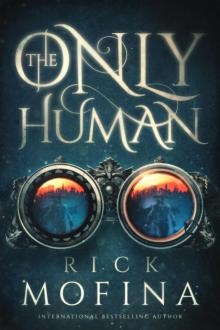 The Only Human
The Only Human Tom Reed Thriller Series
Tom Reed Thriller Series![[Tom Reed and Walt Sydowski 04.0] No Way Back Read online](http://i1.bookreadfree.com/05/tom_reed_and_walt_sydowski_04_0_no_way_back_preview.jpg) [Tom Reed and Walt Sydowski 04.0] No Way Back
[Tom Reed and Walt Sydowski 04.0] No Way Back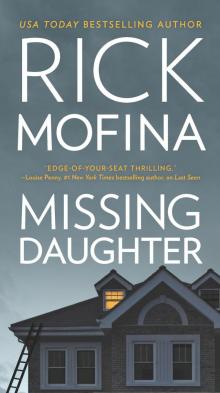 Missing Daughter
Missing Daughter Their Last Secret
Their Last Secret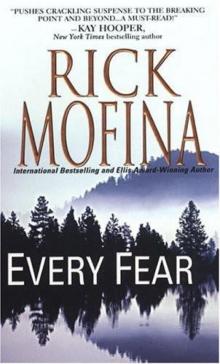 Jason Wade - 02 - Every Fear
Jason Wade - 02 - Every Fear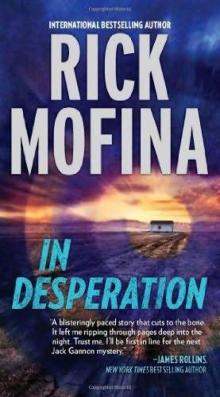 In Desperation
In Desperation Every Second
Every Second Full Tilt
Full Tilt Search for Her
Search for Her The Last Pursuit
The Last Pursuit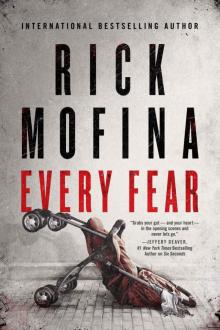 Every Fear
Every Fear Last Seen
Last Seen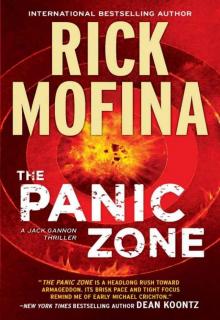 The Panic Zone
The Panic Zone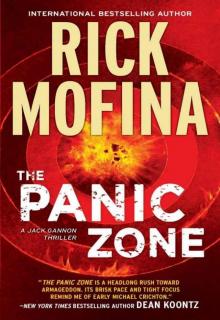 The Panic Zone jg-2
The Panic Zone jg-2 Free Fall
Free Fall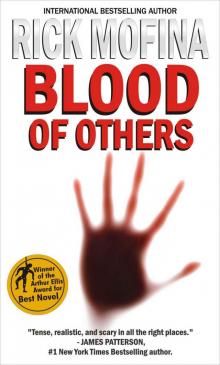 Blood of Others
Blood of Others![[Jason Wade 02.0] Every Fear Read online](http://i1.bookreadfree.com/i1/03/31/jason_wade_02_0_every_fear_preview.jpg) [Jason Wade 02.0] Every Fear
[Jason Wade 02.0] Every Fear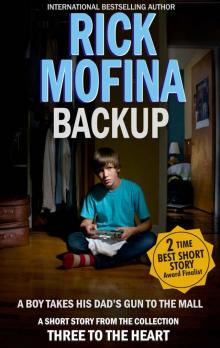 Backup
Backup Perfect Grave
Perfect Grave Into the Dark
Into the Dark Whirlwind
Whirlwind Perfect Grave jw-3
Perfect Grave jw-3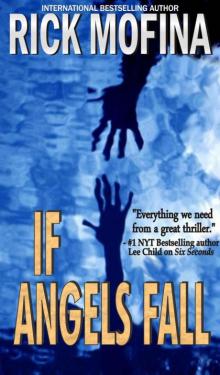 If Angels Fall (tom reed and walt sydowski)
If Angels Fall (tom reed and walt sydowski)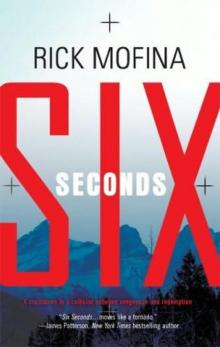 Six Seconds
Six Seconds If Angels Fall
If Angels Fall They Disappeared
They Disappeared Vengeance Road
Vengeance Road Before Sunrise
Before Sunrise A Lifetime Burning in a Moment
A Lifetime Burning in a Moment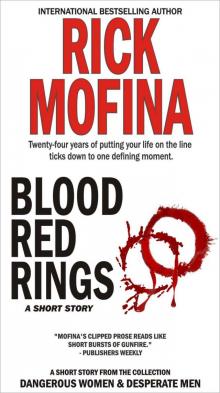 Blood Red Rings (Dangerous Women & Desperate Men)
Blood Red Rings (Dangerous Women & Desperate Men) As Long As We Both Shall Live (Dangerous Women & Desperate Men)
As Long As We Both Shall Live (Dangerous Women & Desperate Men)![[Tom Reed and Walt Sydowski 01.0] If Angels Fall Read online](http://i1.bookreadfree.com/i2/04/12/tom_reed_and_walt_sydowski_01_0_if_angels_fall_preview.jpg) [Tom Reed and Walt Sydowski 01.0] If Angels Fall
[Tom Reed and Walt Sydowski 01.0] If Angels Fall Cold Fear
Cold Fear Be Mine
Be Mine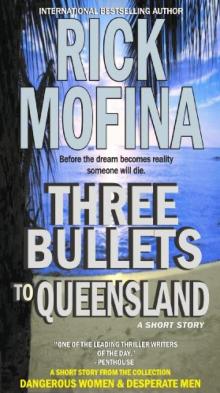 Three Bullets To Queensland
Three Bullets To Queensland